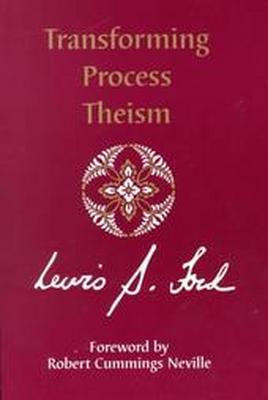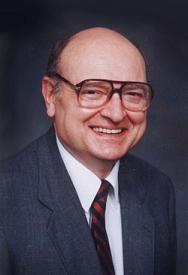
AnthonyFlood.com
Panentheism. Revisionism. Anarchocapitalism.


Ronald H. Nash
From The Journal of Religion, Vol. 65, No. 1 (Jan. 1985), 131-133. A review of Ronald H. Nash, The Concept of God: An Exploration of Contemporary Difficulties with the Attributes of God. Grand Rapids, MI.: Zondervan Publishing House, 1983. Pp. 127.
A Review of
Ronald H. Nash,
The Concept of God
Lewis S. Ford
Before examining particular divine attributes, Nash sketches the contrast between Thomistic and process theism, proposing to “seek a mediating concept of God that would preserve the legitimate concerns while avoiding the most serious difficulties of the process and the Thomistic concepts of God” (p. 36). The end result, however, is heavily on the side of classical theism. His primary modification, following W. Norris Clarke, endorses the distinction between God’s real being and his intentional being, regarding only the former as immutable. As a first approximation this corresponds to Whitehead’s contrast between the primordial and consequent natures, and no change in the consequent nature implies any change in the immutable primordial nature. Process theists, however, have not been inclined to call God therefore immutable because of Hartshorne’s argument about the inclusive category change: if only a small portion changes, and most is unchanging, still the whole is changing.
Nash affirms this modification in order to agree with Clarke that “in some real and genuine way God is affected positively by what we do, that He receives love from us and experiences joy precisely because of our responses: in a word, that His consciousness is contingently and qualitatively different because of what we do” (The Philosophical Approach to God [Winston-Salem, N. C., 1979], p. 90); italics mine). The process theist sees divine knowledge as the cognitive component of such experience, but Nash stops short of holding that God can only know the actual when it has become actual. For if God did not know the future, God would nonetheless hold beliefs about the future, some of which might turn out to be false. How then could God be omniscient, this being defined as holding no false beliefs (p. 59)?
This is a very powerful objection if we assume the future to be what will be. God would have enough experience with the world to avoid that assumption. God’s beliefs concern what might be. Even what might have been with very high probability is not falsified by the occurrence of its contrary, so no false beliefs need ever be involved. (What might be and what might have been are merely different indexical expressions of the same truth. The contrast between what might be and what is, however, is the ontological contrast between possibility and actuality.)
A second objection to process omniscience (God knows all possibles as possible and all actuals as actual but no possibles as actual) is that it undercuts God’s predictive power as portrayed in Scripture (p. 56). Here it might be most useful simply to refer to the work of a fellow conservative evangelical, Richard Rice, who espouses an open future in process terms with respect to God’s knowledge as in accordance with the Scriptures (see Rice’s The Openness of God [Nashville, Tenn., 1980]).
The discussion of the other attributes takes place within the context of the recent discussion in the analytic philosophy of religion: omnipotence, eternity, simplicity, necessity. Simplicity is dispensable, while it is left undecided whether eternity should be conceived as timelessness or everlastingness.
Given the way the book is set up, we may wonder why there is not more conversation with process theism. In part this is due to Nash’s pedagogical aims, for he is more concerned to summarize the current literature than to embark on a sustained inquiry of his own. Here the literature is scanty, particularly on the side of classical theism. Why should this be so? One major reason may be that classical theism, with its heavy commitment to aseity, is quite content, as Nash is, to consider such attributes as omnipotence simply in terms of their inner coherence for God alone, whereas the process theist can only consider the question of divine power in relation to the world, particularly with respect to freedom (creativity) and evil. This introduces necessarily messy metaphysical considerations, which a contemplation of God alone can avoid.
A second reason may lie in their radically incommensurable concepts of divine power. Classical theism conceives of God’s power in “solitary” terms, creating the world ex nihilo, radically different from the ongoing activity of the world. Whitehead’s understanding of power as “shared” blurs this distinction, seeing every coming into being of a new event as necessarily requiring three distinct factors: past events, self-creativity, and divine persuasion. Such divine persuasion may well be just what is needed, but from the perspective of “solitary” power it will simply be rejected as finite.
Posted March 25, 2007